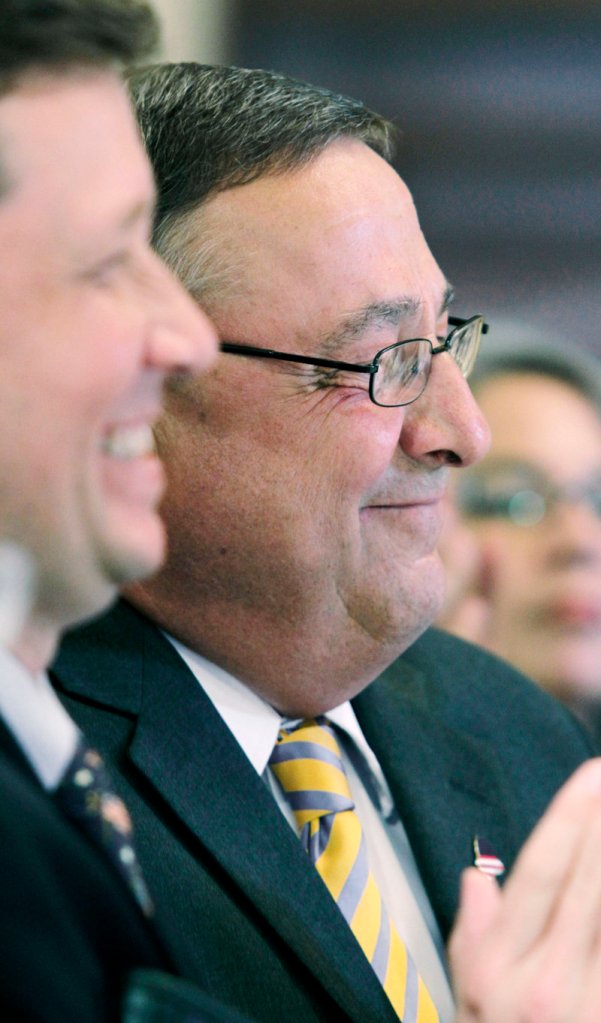AUGUSTA – Gov. Paul LePage signed a bill Wednesday to make Maine the 41st state to allow charter schools.
“This is all about the kids,” LePage said. “This is about giving students choices in their education that will help them succeed.”
Charter schools are “another element in our education system that we can use to provide our children with the best possible education,” said the governor, who was joined by several of the bill’s supporters and Education Commissioner Stephen Bowen.
A charter school is a public school, attended voluntarily, that creates educational settings for students who don’t fit into traditional public schools.
The bill signed Wednesday will allow no more than 10 public charter schools in the first decade, and will limit the number of students who can attend them in the first three years.
The bill’s sponsor, Sen. Garrett Mason, R-Lisbon Falls, said it moves Maine “from a one-size-fits-all approach to an individualized education for all.”
“The traditional public school system works great for most Maine kids, but the system we need to strive for is one that truly leaves no child behind,” Mason said. “Charter schools are not a silver bullet, but part of a new educational silver buckshot that will increase our chances of reaching every Maine child.”
Charter-school proposals have been rejected by Democratic-controlled legislatures, and charter schools were an issue during last year’s gubernatorial campaign, in which LePage, a Republican, pledged to bring them to Maine.
Under the new law, charter schools can be organized by a founding board of directors, whose application can be submitted to a new state Charter School Commission or the local school administrative unit. The schools cannot teach religious practices or discriminate against students or teachers.
While they will be subject to the same state assessments and federal requirements, charter schools can have innovative governance structures, such as teacher-leaders; may be flexible with their schedules, offering evening or weekend class time; can orient toward a particular style of learning; and can hire teachers who may have particular experience but not state certification, according to the governor’s office.
Judith Jones, chairwoman of the Maine Association of Charter Schools board of directors, said her organization has already talked with school superintendents who are interested in authorizing charter schools — particularly for arts, early-childhood education and programs for children at risk.
Potential founders are also out there, and may start schools based on marine science, special education or Montessori practices, Jones said.
The bill will allow the Maine Department of Education and charter schools in the state to receive federal grants, answering one of the most persistent criticisms of charter schools — that they siphon funds from the public school system.
Charter-school advocates say the schools can serve students who aren’t well served in traditional public schools. Rather than siphon money from public schools, they say, charter schools can bring in new funds from the federal government and philanthropies.
Rules relating to transportation, food service, governance, collective bargaining and other areas have yet to be written.
LePage high-fived a group of students seated behind his desk before sitting down to sign the bill.
His signature leaves only nine states without charter school laws.
Send questions/comments to the editors.


